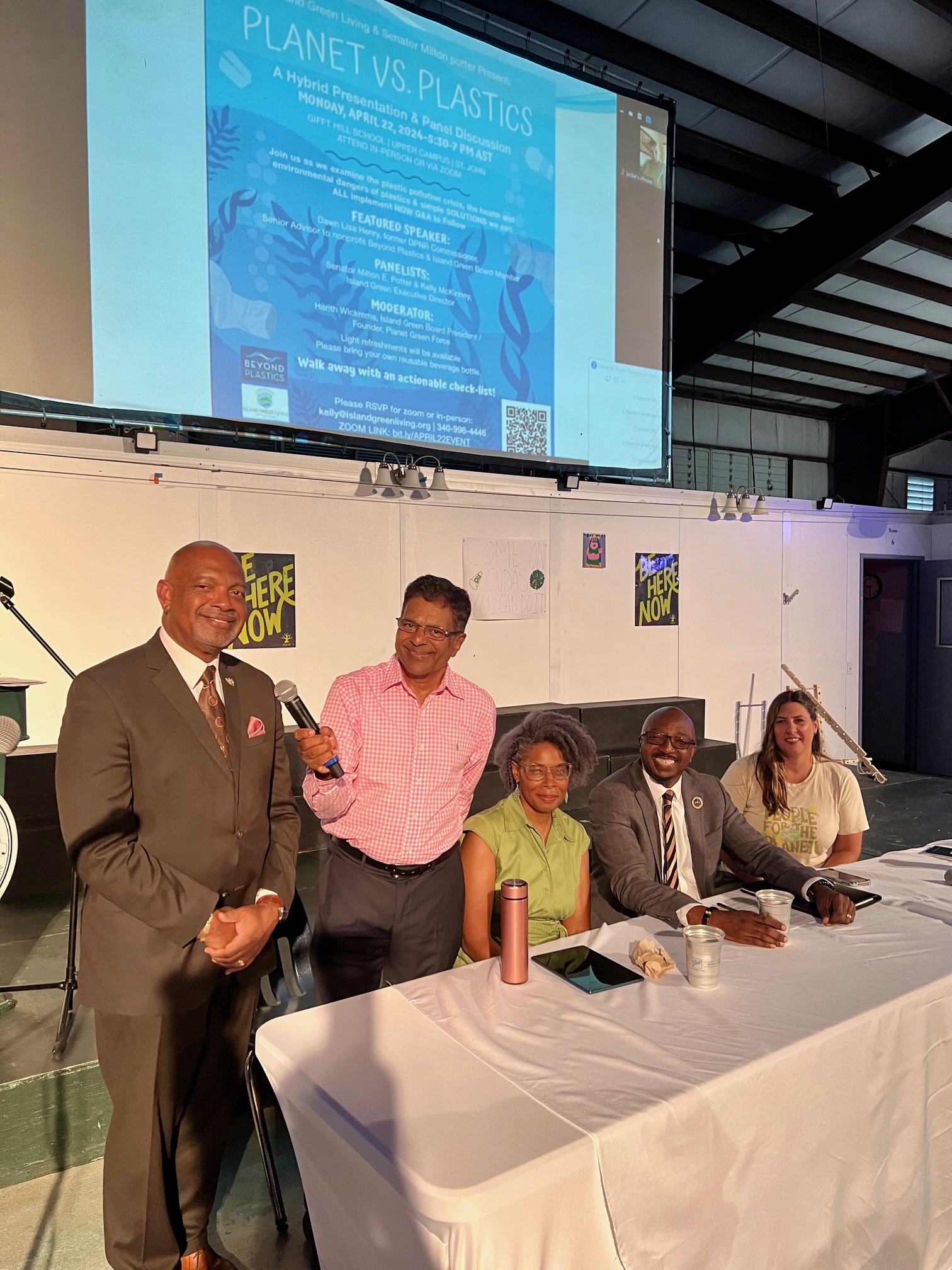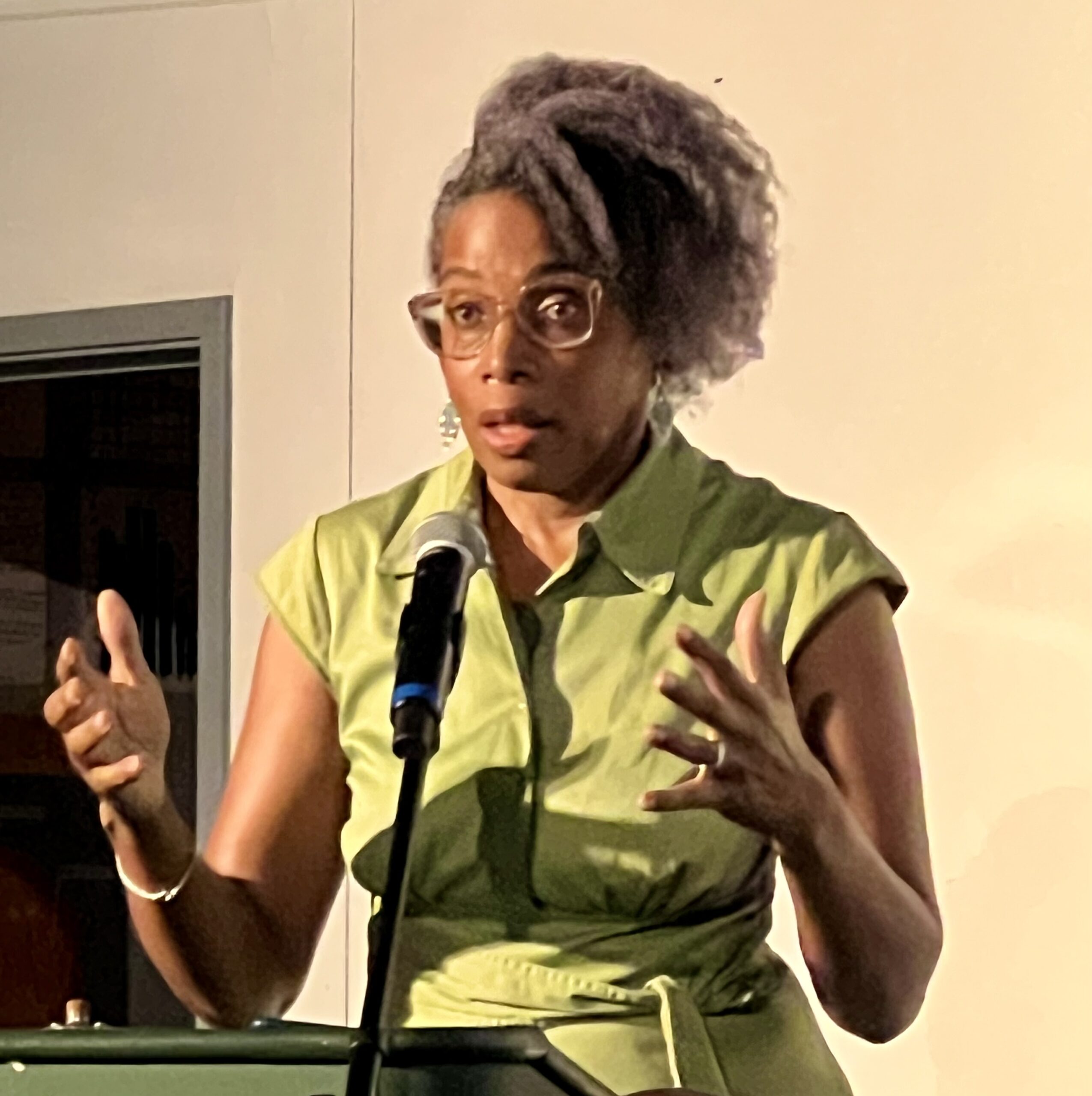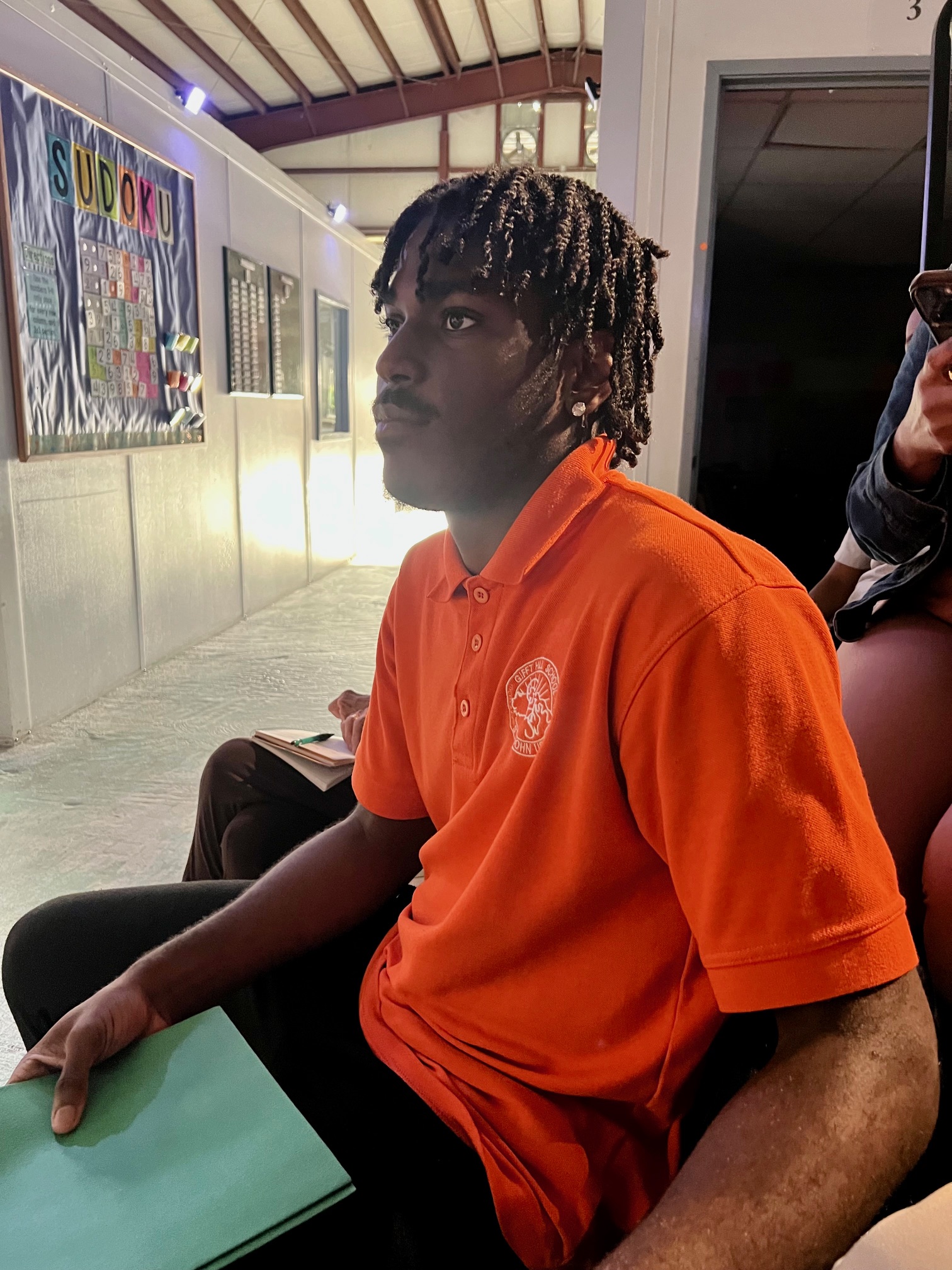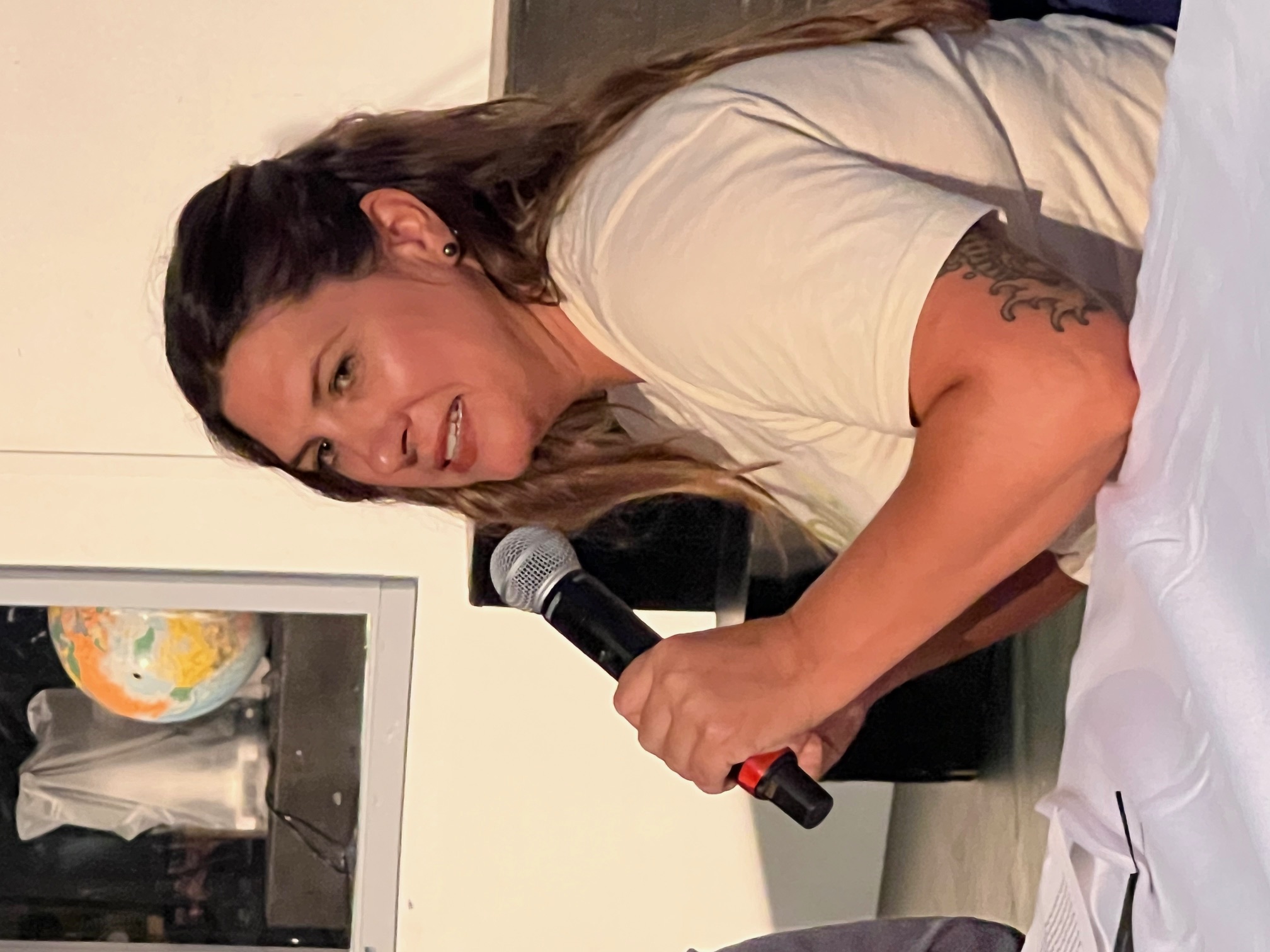Throughout the world, one million plastic bottles are bought every minute; each one can take up to 100 years to degrade.
Five hundred billion plastic bags are used each year.
Eight million tons of plastic enter oceans and wash up on beaches every year.
Unless we change our ways, by weight there will be more plastic in the ocean than fish in the year 2050.

These are just some of the alarming statistics presented at Planet vs. Plastic, a workshop presented as part of the Earth Day activities on St. John sponsored by Island Green Living Association.
Keynote speaker Dawn Henry of Beyond Plastics urged audience members to face the facts: In spite of what plastic manufacturers promised decades ago, only about six percent of plastics are ever recycled.
Henry, a former commissioner of the Department of Planning and Natural Resources and a board member of Island Green Living Association, outlined the toxic effects of plastics.

Plastics contain carcinogens and endocrine disruptors, and the health effects of these substances include asthma, AHDH, low birth weight, infertility, and multiple types of cancer. Those who live in communities of color and low-income areas are more likely to suffer the effects of pollution, Henry said.
But there are actions we can take now to address the problem, she added. As 46 percent of the plastic produced is used for single-use packaging, we can all immediately cut down on our use of single-use plastics by following a few simple steps:
- Bring a reusable bag when shopping.
- Refuse plastic produce bags.
- Compost organic food waste and reduce trash bags.
- Bring a reusable to-go container to restaurants.
- Bring a reusable cup to bars and restaurants that serve drinks in plastic cups.
Some plastics are now part of our infrastructure, such as PVC pipes that contain vinyl chloride, a known carcinogen. Some communities are taking action by banning PVC pipes and replacing them with copper or stainless-steel pipes, Henry said.
Beyond Plastics, a non-profit organization founded by former U.S. EPA Regional Administrator Judith Enck, is working to inform the public about the prevalence of plastic in our modern world. (Plastic is a common ingredient in teabags, for example.)
The organization is also calling upon plastic manufacturers and consumers to reduce the use of plastics by 60 percent by 2040.
Jaden Pascal, a senior at the Gifft Hill School where Monday’s workshop was held, said people are now learning to carry their own bags into markets and participate in community clean-ups, but that wasn’t enough. “What about the microplastics in our food sources? We need to find solutions.”

Pascal said community leaders have to set an example, and when he pointed out that V.I. senators typically have a single-use plastic bottle of water set in front of them during legislative sessions, panelist Sen. Milton Potter responded that he would seek to change that. Potter is currently sponsoring legislation to ban the use of Styrofoam plates, trays for take-out food and packaging peanuts.
Kelly McKinney, the executive director of Island Green Living, said, “The environmental situation can feel daunting,” but when she gets discouraged, her mantra becomes “Think globally, act locally.”

Island Green Living’s goal is to transform the USVI into a net zero waste, carbon-neutral community to protect the environment and ensure the health, welfare and economic security of its people.
The organization recycled more than three million aluminum cans since taking over a community recycling program. Its ReSource Depot has kept nearly one million pounds of used building/construction materials, clothing, furniture and home goods out of our landfill. And it has operated a program to recycle ocean-bound plastics since 2022.
Harith Wickrema, president of Island Green Living, said the organization needs funds to keep its programs going. They’re now holding their annual fundraiser Love City Vacation for Two, a one-week vacation package valued at more than $11,000. Tickets are $50 each or six tickets for $250.
In the USVI, more than 200,000 tons of waste is produced each year. That’s roughly nine pounds per person per day, which is 40 percent above the national average, according to panelists.
Lt. Gov. Tregenza Roach, who made opening remarks at the workshop, said, “We all need to be concerned about the environment. We need the planet more than it needs us.”


